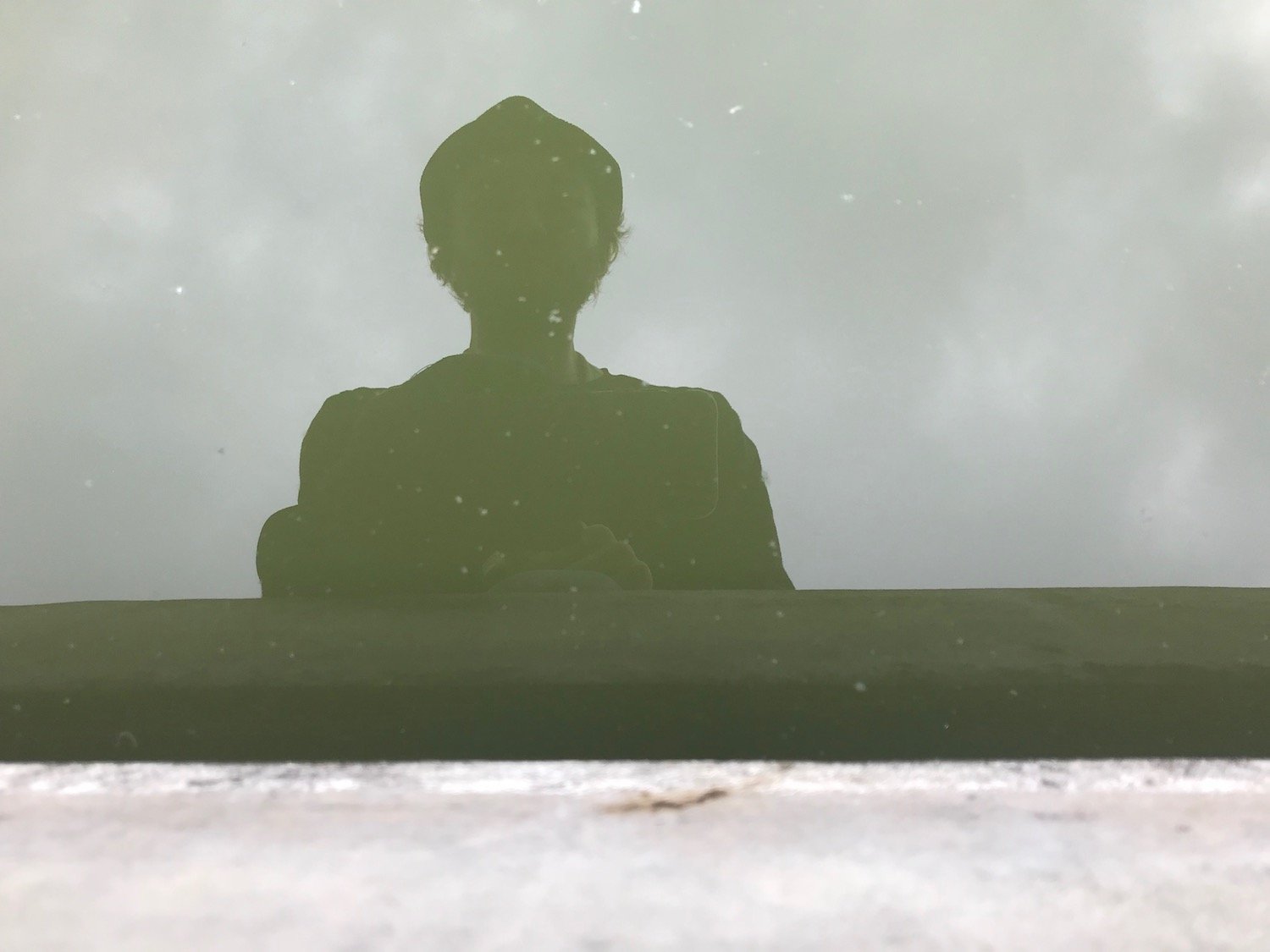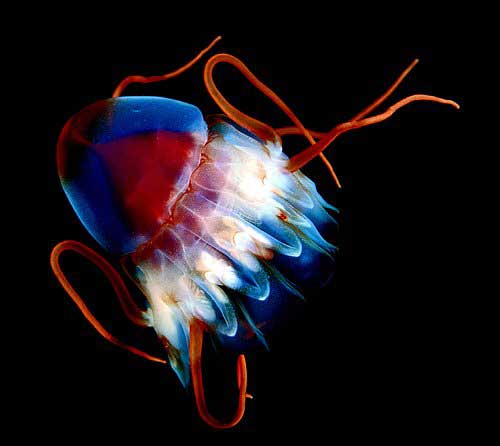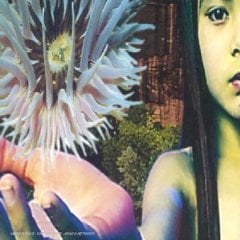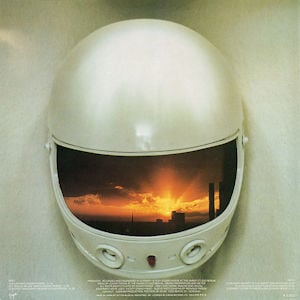| Author |
 Topic Search Topic Search  Topic Options Topic Options
|
SteveG 
Forum Senior Member


Joined: April 11 2014
Location: Kyiv In Spirit
Status: Offline
Points: 20503
|
 Topic: Rubycon: Tangerine Dream Topic: Rubycon: Tangerine Dream
Posted: December 30 2014 at 16:59 |
|
Rubycon followed Phaedra in 1975 and still holds up. Why is it such a great follow up to the impressive Phaedra?
|
 |
Dayvenkirq 
Forum Senior Member


Joined: May 25 2011
Location: Los Angeles, CA
Status: Offline
Points: 10970
|
 Posted: December 30 2014 at 21:13 Posted: December 30 2014 at 21:13 |
|
Great sound engineering job. Love the sounds of the keyboards. Loose as those tracks may be, those notes, chords, and sounds - it all just makes sense.
|
 |
Toaster Mantis 
Forum Senior Member


Joined: April 12 2008
Location: Denmark
Status: Offline
Points: 5898
|
 Posted: December 31 2014 at 05:15 Posted: December 31 2014 at 05:15 |
|
I think Rubycon works in part because it goes for something very different in theme than the predecessor, having a more naturalistic and physical atmosphere to it. (cover art is also inspired by water rather than air) Also feels like a more "extroverted" album, if that somehow makes sense. Basically, with Phaedra I get the mental imagery of outer space and distant myth with Rubycon more that of seafaring ancient civilization.
Rubycon also seems to more overtly show the Kosmische Musik movement's influence from 20th century classical, not just with the album being one long composition that's obviously meant to be listened to in a single sitting but the arrangements also feel more orchestral in character.
|
|
"The past is not some static being, it is not a previous present, nor a present that has passed away; the past has its own dynamic being which is constantly renewed and renewing." - Claire Colebrook
|
 |
Guldbamsen 
Special Collaborator


Retired Admin
Joined: January 22 2009
Location: Magic Theatre
Status: Offline
Points: 23098
|
 Posted: December 31 2014 at 05:22 Posted: December 31 2014 at 05:22 |
Hmmm I think Phaedra sounds more indebted to the Kosmische thang although I understand where you're coming from. With Rubycon I think they veered more into modern classical - like Schulze did with X. Still got that free association fingerprint all over it, but it feels more in the vein of Riley than say Conrad Schnitzler, Ash Ra Tempel or even Kluster.
|
|
“The Guide says there is an art to flying or rather a knack. The knack lies in learning how to throw yourself at the ground and miss.”
- Douglas Adams
|
 |
Toaster Mantis 
Forum Senior Member


Joined: April 12 2008
Location: Denmark
Status: Offline
Points: 5898
|
 Posted: December 31 2014 at 05:26 Posted: December 31 2014 at 05:26 |
|
My point is that Rubycon's more obvious in its classical inspiration, whereas with Phaedra it felt like they were more exploring the new possibilities of synthesizer technology. Never thought that TD were imitating their former member Klaus Schulze with Rubycon until you mention it, but now it actually makes sense.
I really need to listen to more Schulze, by the way, it's just that his music requires a lot of concentration to listen to which I haven't really had access to very often.
|
|
"The past is not some static being, it is not a previous present, nor a present that has passed away; the past has its own dynamic being which is constantly renewed and renewing." - Claire Colebrook
|
 |
Guldbamsen 
Special Collaborator


Retired Admin
Joined: January 22 2009
Location: Magic Theatre
Status: Offline
Points: 23098
|
 Posted: December 31 2014 at 06:03 Posted: December 31 2014 at 06:03 |
I didn't actually mean they "copied" Schulze, but they certainly were exchanging glances all through the decade. They were friends after all - and had more respect for each other than what was openly suggested. That's what I think anyway. Hell most of the early German synth pioneers knew each other. It was Florian Fricke who introduced Schulze to the moog synthesiser in the first place. After his two opening electronic efforts under the moniker of Popol Vuh, which he sadly didn't think too highly off, he passed it on to Klaus.
I'll advise you with the same as I do every other person trying to get into any Schulze. Listen very late at night, when your body is tired but your brain still is working for some remarkable reason. That's where the real magic happens. Better yet, if you do night walks, then I highly recommend him as a companion. I used to do that all the time back when I called Nørrebro home. The architecture and general feel of big old buildings genuinely complimented the man's work. That's actually a thing I've taken with me - that sense of architectural scope there is to Schulze's music. That's why I always listen to Mirage whenever I visit Kastrup airport. The domestic departure building s'got a loooong hall designed by Utzon that genuinely gives the impression to people that they're walking through a huge white sail. If the sun is out, it's even more magnificent. Mirage is THE perfect partner I find. (....or Koroiev's Hechos Tocantes al Joven kostia Bogomov, Moradores del otro Mundo, which, if I remember correctly, still is a free download from bancamp (I'm just not entirely sure the RIGHT version of the album is available anymore  He made an early version where the vocals were raw that sounded like a modern electronic Manu Chao album. The file size for that is a 105 MB, but now it seems he only has the new and "improved" version up for grabs, which is a shame. The sound is cleaner and the vocals just sound awful.)
Edit: I can't even find the new version of the album on bandcamp now. What? 
Edited by Guldbamsen - December 31 2014 at 06:06
|
|
“The Guide says there is an art to flying or rather a knack. The knack lies in learning how to throw yourself at the ground and miss.”
- Douglas Adams
|
 |
Blacksword 
Prog Reviewer


Joined: June 22 2004
Location: England
Status: Offline
Points: 16130
|
 Posted: December 31 2014 at 06:15 Posted: December 31 2014 at 06:15 |
|
I've not heard all of their albums but Rubycon is my favourite of those I have heard. I prefer it to Phaedra.
Ahead of its time too. The atmosphere and sounds in part 1 bring to mind Future sound of London and Global Communication.
|
|
Ultimately bored by endless ecstasy!
|
 |
verslibre 
Forum Senior Member


Joined: July 01 2004
Location: CA
Status: Offline
Points: 15007
|
 Posted: January 02 2015 at 11:12 Posted: January 02 2015 at 11:12 |
 Toaster Mantis wrote: Toaster Mantis wrote:
I think Rubycon works in part because it goes for something very different in theme than the predecessor, having a more naturalistic and physical atmosphere to it. (cover art is also inspired by water rather than air) Also feels like a more "extroverted" album, if that somehow makes sense. Basically, with Phaedra I get the mental imagery of outer space and distant myth with Rubycon more that of seafaring ancient civilization. |
Ever since I first saw the album cover art and subsequently heard the music, I've never associated Rubycon with any kind of water imagery. The vortex on the cover reminds me of energy, but the music suggests an excursion into the Underworld, be it Dante's or whatever. It isn't really that dark, but it has a voyeuristic aspect of one sailing far above the horrors below. I'm certain the band had no such intentions. 
 Toaster Mantis wrote: Toaster Mantis wrote:
Never thought that TD were imitating their former member Klaus Schulze with Rubycon until you mention it, but now it actually makes sense. |
I've never ever felt TD has had to take a page from Schulze. Froese was at the top of his game as a composer ca. for roughly the second half of the '70s and perhaps up to '86.
 Toaster Mantis wrote: Toaster Mantis wrote:
I really need to listen to more Schulze, by the way, it's just that his music requires a lot of concentration to listen to which I haven't really had access to very often.
|
Schulze's best moments were in the '70s. There is an absolutely spectacular piece on La Vie Electronique 4 that makes the set worth the price of admission. His post-70s albums reveal a lot of recycling going on, and a lack of imagination for arrangements. Listen to Dreams (1986) and En=Trance (1988) back-to-back.
|
|
|
 |
Donate monthly and keep PA fast-loading and ad-free forever.
/PAlogo_v2.gif)


